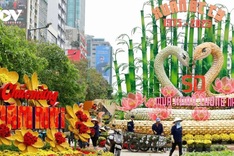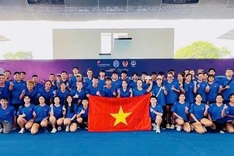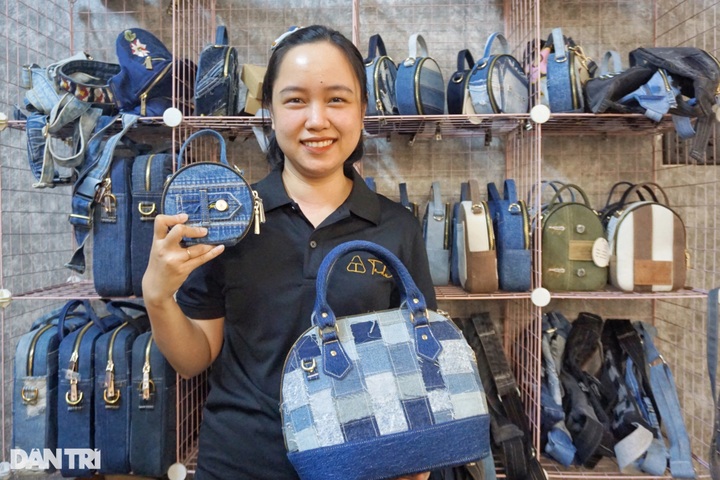
Hong Tham besides her bags made from recycled denim.
Now 33, Tham has spent the last five years transforming old jeans into handmade bags. Her modest home on Bui Quang La Street is filled with stacks of denim, evidence of a career path that began with a bold decision to trade comfort for creativity.
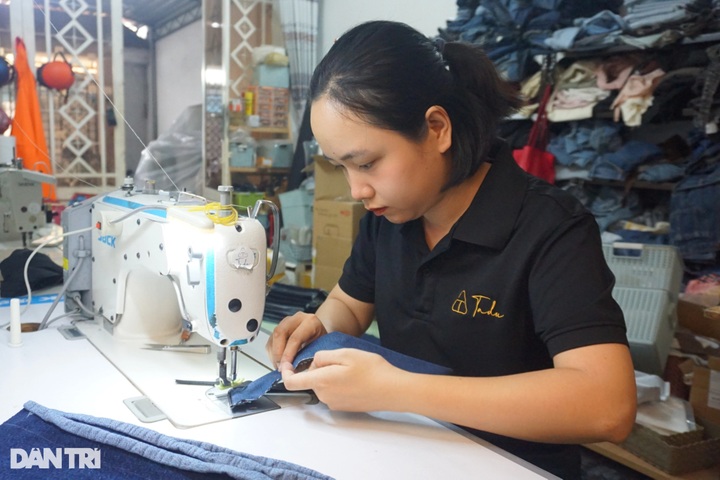
“I used to work in a stable office job, and everything was going well,” Tham recalled. “But I was still young and wanted to try something different, so I quit and started experimenting with fabric bags.”
Initially, Tham used brocade fabric to make her bags, but found the price too high for most customers. While searching for new materials, she tried repurposing an old pair of jeans into a bag and posted the result on social media. The positive feedback convinced her to focus on recycled denim.
Tham sources old jeans from individual customers and clearance sales at fashion stores. The used clothes are washed, sorted and then selected based on colour and texture to match the design she envisions.
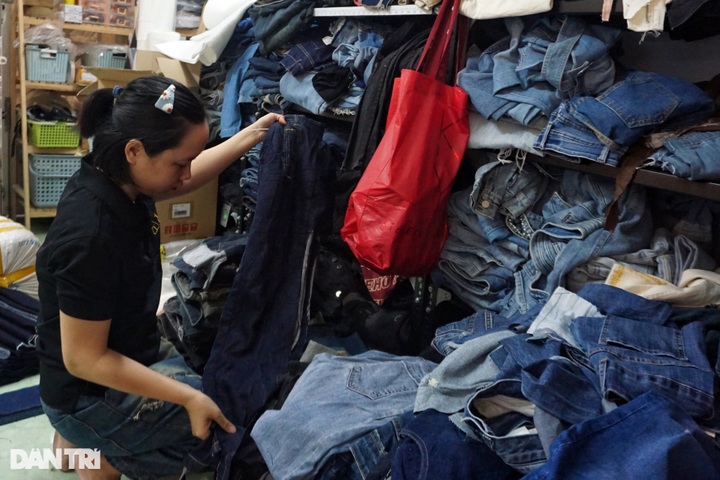
“Each piece is unique, so I can’t cut the fabric in advance,” she said. “Everything depends on the details of the material.”
She admitted to having no prior experience in sewing or design. “I had nothing but passion when I started,” she said. “I learned every stitch by trial and error. It took about eight months before I was able to create a product I was truly satisfied with.”
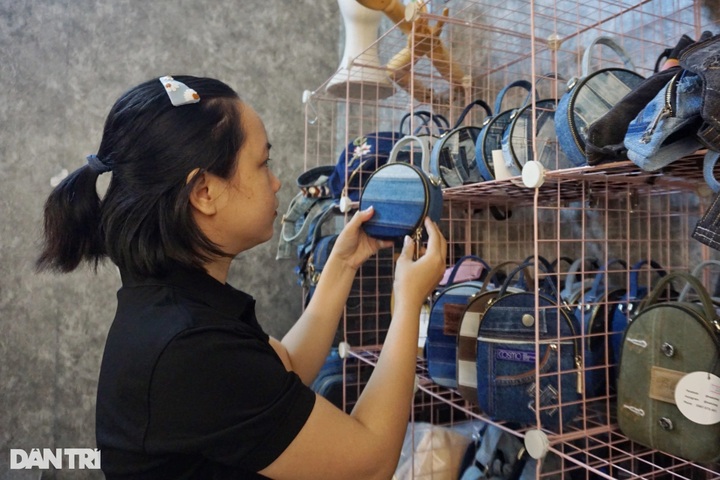
From zero income to profitable business
In her first year, Tham made almost no money. But she persevered, working into the early morning hours, crafting not just bags, but also coasters, wallets and small stuffed animals from leftover fabric.
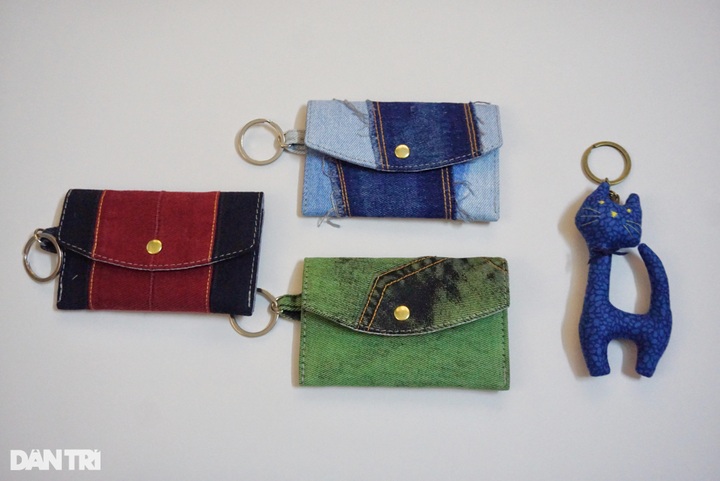
Her persistence paid off. “At first I earned around VND 10 million (approximately USD 400) per month. During peak periods, I can make VND 40 to 50 million (approximately USD 1,600 to 2,000),” she shared.
Most bags are priced between VND 300,000 and 500,000 (approximately USD 12 to 20), with premium designs reaching VND 700,000 to 800,000 (approximately USD 28 to 32). While larger bags are more time-consuming and less profitable, Tham is committed to fair pricing that reflects her labour.
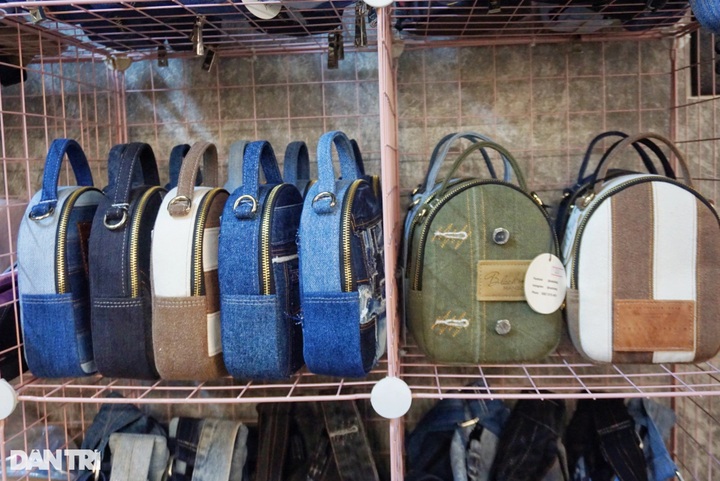
Her products have attracted attention online, but Tham says creativity is key to staying relevant. “There are many similar products out there, so I have to constantly innovate in both design and technique. I also add hand embroidery and decorative painting to make each bag unique,” she explained.
Tham believes recycled denim products not only minimise waste but also reflect a modern, eco-conscious lifestyle. “Each bag is a one-of-a-kind item, which makes them meaningful gifts as well.”

She has even received bulk orders of up to 200 units, with buyers accepting the fact that no two items are identical.
Future plans: more products and community engagement
Looking ahead, Tham hopes to expand her product range to reach a broader customer base. She also plans to host workshops where people can experience the recycling process and better understand the craftsmanship behind upcycled denim bags.
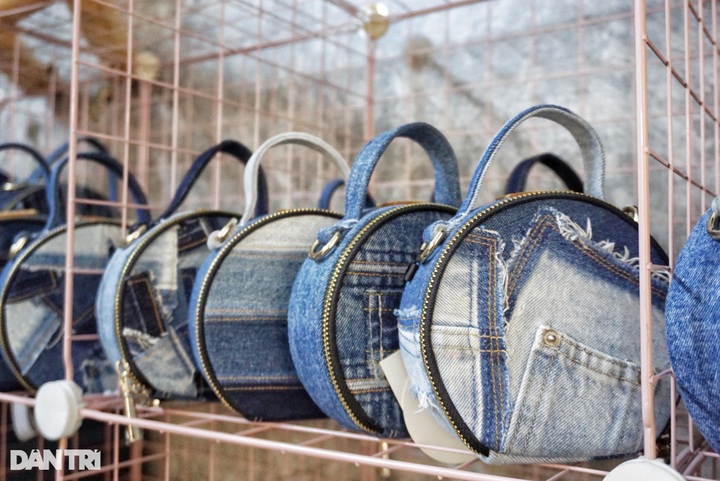
“These bags are more than just accessories. They tell a story,of sustainability, individuality, and passion,” she said.









